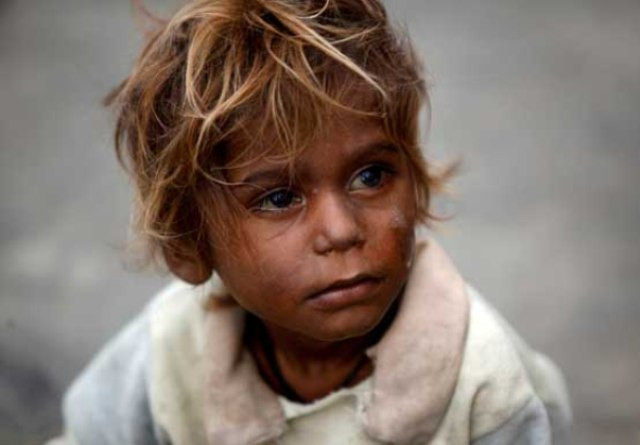My Eids are always spent in my village located in interior Sindh. Last Eid, I spent the whole night playing cricket, feasting on Karhai at a highway eatery coupled with the occasional smoke. I sat with my paternal cousins, waiting for another round of tea till four in the night.
That is when the ‘haris’ woke up to start another day of their daily toil.
The peasant’s life - what miserable existence!
Generation after generation, cycle after cycle, season after season; the tiller of the soil, the reaper of mother earth’s countless benedictions, clothed in nothing more than rags, an axe in hand with his fate determined by the number of lines at his ‘Master’s brow.
Members of the Hari community came to the same eatery that we were sitting in. They sat apart. Among them, there was one Hari boy whose gaze I shall never be able to forget as he wondrously gazed at the affluent kids; centuries of exploitation, destitution and penury were all combined in one gape.
He asked a thousand question with that stare.
Yes, contrary to the vibes of romanticisation many feel for the rural world, life is indeed ‘nasty, short and brutish’ for a multitude in Pakistan’s pastoral environs. It is only beautiful for the local zamindar, jagirdar and wadera.
In Sindh, there are some Hari families, which have been in the same occupation for the past 500 years and beyond. There are some, whose children cannot even read a localized vernacular of Sindhi. There are some, where even curable illnesses imply certain death.
The situation is even worse here than the Punjab.
Historically, the landowner-tenant relations in Punjab were characterised as ‘zamindari’ relations. The landowner-tenant relationship in Sindh, introduced in the Raj, were categorised as ‘ryotwari.’ One cannot dwell upon the specific differences between the two systems; however, there are two which need to be highlighted.
Firstly, the ryotwari system was more exploitative since power was constrained in the hands of a few landlords, seen in a favourable light by the Raj’s top echelons. Consequently, landholdings of individual landlords were larger in size; comprising of thousand of acres.
In the zamindari system, power was more dispersed and land holdings were smaller. The zamindar’s power over the tenants was still considerable but it was nothing comparable to the levels of authority the Sindhi landlords subsequently subsumed.
The situation only worsened after the creation of Pakistan since the future politicians of Sindh were all to come from these landlord families. Power was not only centralized in the hands of few; it was severe in its totality too.
I doubt whether the politicians of my village, the policy makers of this country or the countless who continue to reap profits from the Haris’ labor have answers to the questions in the stare of that young Hari boy.
Who can answer the silent questions of a young Hari boy?
Generation after generation, cycle after cycle, season after season - they continue their toil.



COMMENTS
Comments are moderated and generally will be posted if they are on-topic and not abusive.
For more information, please see our Comments FAQ